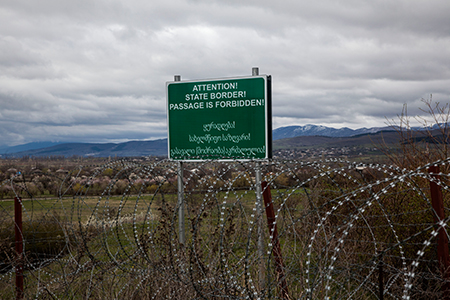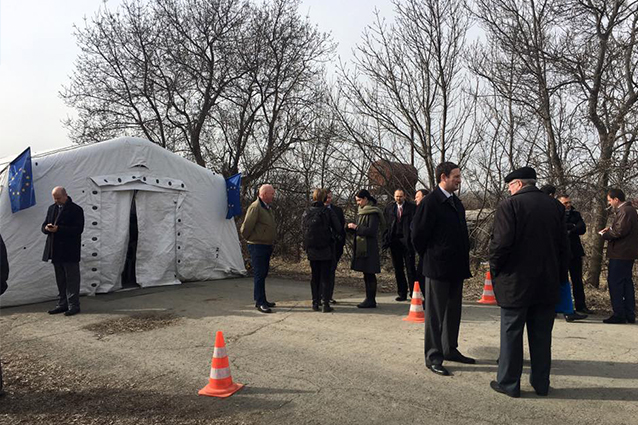More than 900 Georgian citizens detained along occupation line in 8 years

915 people have been illegally detained for allegedly crossing the Administrative Boundary Line (ABL) between Georgia and its breakaway Tskhinvali region (South Ossetia) since 2010.
Georgian news agency Interpressnews published this information based on data provided by the State Security Service of Georgia.

Russian border guards often detain those who intentionally or unintentionally cross the so-called border at locations that do not have barbed-wire fencing.
Detainees are then usually released after their families pay a fine.
The Georgian State Security Service says that this fine is generally around 2,000 rubles, which is about 88.80 GEL or $35.8 dollars or €34.02.
The Illegal detention of Georgian citizen Giorgi Giunashvili back in 2016 was one of the issues discussed today at a meeting of the Incident Prevention and Response Mechanism (IPRM) in Ergneti.
An unrecognised court in Georgia's Russian-occupied Tskhinvali region (South Ossetia) sentenced Giunashvili to 20 years imprisonment last month.

Participants of today's IPRM meeting are starting to gather in Ergneti village. Photo by EUMM
The IPRM was created in February 2009 following the 2008 Russia-Georgia conflict to address security concerns and ensure the protection of human rights in the occupied regions.
The meetings are an opportunity to identify and discuss potential risks and follow-up on incidents affecting the communities along the ABL on a daily basis.
- Want to know more about the lives of people living along the ABL? Read the article ‘Georgia: Easter behind barbed wire’ by Lali Tsertsvadze in the Special Reports’ section on Agenda.ge.
The illegal detention of Georgian citizens near the ABL is a common issue, particularly in spring and summer when residents tend to grazing cattle or to pick jonjoli (a variety of capers), mushrooms and firewood.
It is not always obvious where the occupation line has been demarcated, because Russian occupation forces keep changing the so-called borders. This process is informally referred to as "creeping occupation”.
 Tweet
Tweet  Share
Share